Donald Trump’s revolution will transform the world
There’s always the chance Donald Trump will make such a mess of things that his revolution is short-lived ... but he has the opportunity, if he governs well, to produce permanent change.
But I may be understating things a bit.
Of course, there’s always the chance Trump will make such a mess of things that his revolution is short-lived. Western electorates are developing a taste for single-term governments. But Trump has the opportunity, if he governs well, to produce permanent change.
Trump has won a prodigious and unpredicted victory. He has officially won five of the seven battleground states – Pennsylvania, Michigan, Wisconsin, Georgia and North Carolina – and is well ahead in the final two, Arizona and Nevada, and will win them.
Trump will have 312 electoral college votes, to Kamala Harris’s 226. Trump will win six more than Joe Biden won in 2020 and eight more than Trump himself got in 2016. Astoundingly, Trump has won the national popular vote. He had huge swings, more than 5 per cent, in safe Democrat states such as California and New York. Trump got swings in almost every state.
He is the first Republican since George W. Bush in 2004 to win the popular vote, and a majority of voters, something Bill Clinton never managed.
Trump won the working class, but that’s old news. According to exit polls, Trump went within a whisker of winning Hispanics. He did win Hispanic men. Exit polls probably understate Trump’s support. It’s likely he actually won a majority of Hispanics.
That’s a revolution. Hispanics are a fast-growing demographic. Republicans have eyed them covetously for decades. Bush won 40 per cent of them. Ronald Reagan said Hispanics were natural Republicans, they just didn’t realise it yet.
The Hispanic realignment is the most dramatic outcome of this dramatic election. Their vote illustrates the limits of Democrat identity politics and the power of Trump’s issues-based campaign, as well as his ability to connect culturally with working people. Many Hispanics are solidly working class. They resemble an older style of American working class. More religious than the average American, more patriotic, with high rates of military service, socially conservative, a strong emphasis on traditional families, practical about money issues, Hispanics are indeed natural Republicans waiting to be discovered.
Of course, many Hispanics don’t fit this stereotype either. Some 65 million Americans are Hispanic and they’re very diverse. This election doesn’t indicate permanent commitment to the Republican Party. It does suggest they’re now always in play.
Trump perhaps doubled his previous support among blacks, especially black men, though exit polls give widely varying numbers.
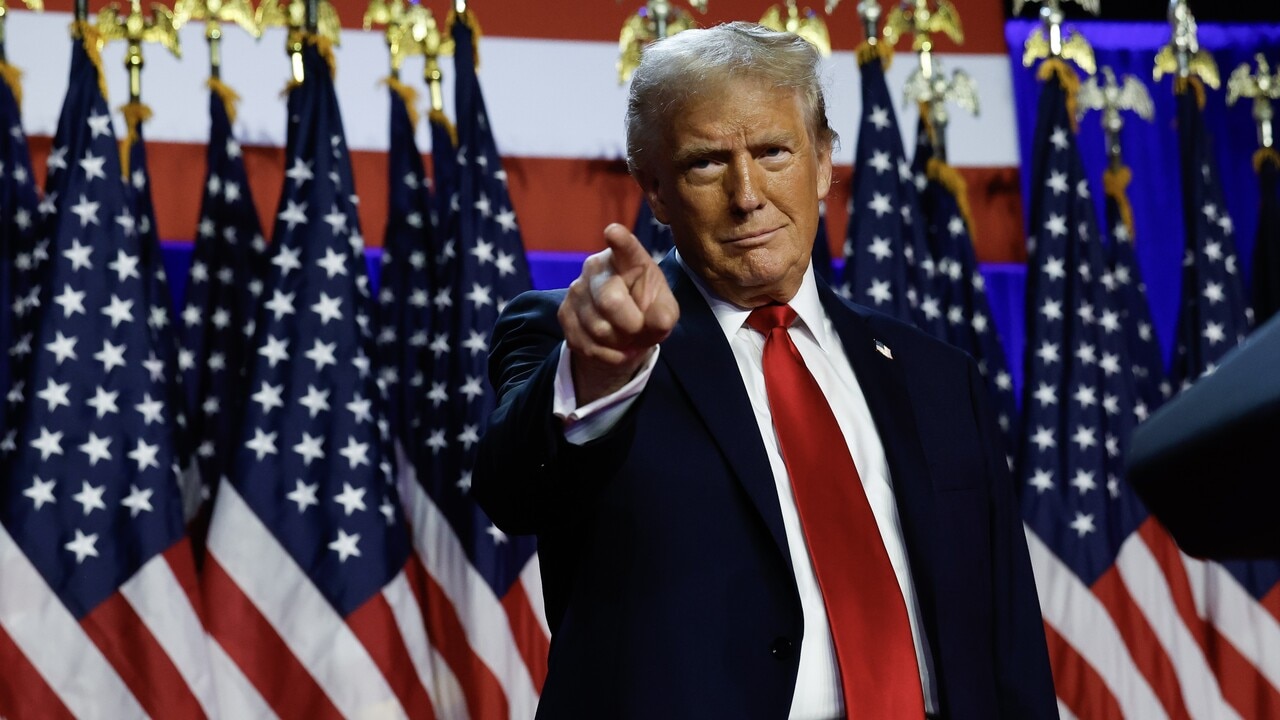
Trump revolutionaries, and conservatives, should be careful not to misinterpret, or over-interpret, the result. Abortion as an issue didn’t work as advertised for the Democrats. Harris won a smaller percentage of female voters than Biden did four years ago. Identity politics didn’t work for Democrats.
But Trump’s campaign ran hardest and best not on culture wars but on traditional issues – cost of living, illegal immigration and rising crime.
Illegal immigration was a big issue with Hispanics. It costs money, time, effort and perseverance to migrate legally to the US. No one is reflexively more hostile to illegal immigration than immigrants who’ve come legally. That’s true in Australia, too.
So while most Americans don’t buy woke leftism and identity politics, neither is there much evidence they’re seriously conservative. In most states, pro-abortion measures have succeeded since the Supreme Court overturned the Roe v Wade ruling, which had discovered a fictional constitutional right to abortion.
Trump won on bread-and-butter issues. Being moderately socially conservative, particularly being patriotic, didn’t hurt. Trump increased the Republican vote among young people and actually won the under-30 vote in Michigan.
Republicans have also won the Senate and look likely to retain a majority in the House of Representatives. Trump will start his presidency in a strong position. Three institutions emerge from the election severely damaged. Polls now lack all credibility. The polls underestimated Trump’s national vote by about 4 per cent, a shocking gap.
Some polls get only 2 per cent of people willing to answer questions. No matter how you weight the answers to try to reflect the nation’s general social composition, it seems people who answer polls are just unrepresentative.
The polls showed the battleground states as desperately close. But Trump won them clearly, albeit by margins within the polls’ margin of error. Not one poll underestimated Harris. Polls are not much use if they simply declare battleground states an effective tie with a margin of error of 3 per cent, so that if either candidate wins by less than 3 per cent they can claim they were within the margin of error.
Mainstream media also emerge hugely discredited. Until Biden’s devastating debate performance, almost all of them connived in the obvious deception that Biden was cognitively fit to hold office. They were so soft in interviews with leading Democrats and so hostile to Trump and his surrogates, and their characterisation of Trump was often so absurd – fascist, Nazi, and so on – that they probably contributed to Trump’s vote.
The third institution whose credibility tanked was Hollywood and pop stars. What do Oprah Winfrey, George Clooney, Julia Roberts, Beyonce and Taylor Swift all have in common? They enthusiastically backed Harris. As political seers, they make good entertainers. I watch Clooney’s movies, but it has never occurred to me that he has any useful advice on politics.
How will Trump behave internationally?
That is genuinely unknowable. The first big clues will be who he appoints to his cabinet and senior advisory positions. As Mike Green of the US Studies Centre points out, three types of folks are emerging as cabinet candidates – traditional Republican politicians and policymakers, Wall Street types and Make America Great Again nuts, fanatics and grifters.
The first two – Republicans and Wall Street types – will dominate cabinet appointments. The MAGA fanatics will be part of the administration, but more likely in advisory positions. Contrary to popular myth, not all the good people in Trump’s administration fell out with him and left on bad terms.
Trump’s last secretary of state, former CIA director and congressman Mike Pompeo, was widely liked and admired by US allies. There’s a strong chance he will become defence secretary.
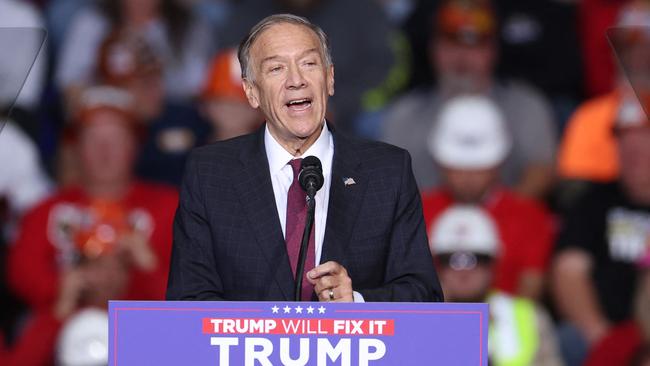
Similarly, Robert O’Brien, Trump’s last national security adviser, like Pompeo, is a hawk. He’s a well-respected lawyer and international affairs professional and army veteran who served in the George W. Bush administration. He and Republican senator Bill Hagerty, a former US ambassador to Japan, are frontrunners for secretary of state.
These three represent the Trump mainstream play. They are tough-minded hawks, focused on China, impatient with US allies such as the European NATO members for not spending enough on defence, but realise Washington needs Europe to cope with China.
Vice-president-elect JD Vance, who campaigned brilliantly, famously remarked that Ukraine was in a part of the world much less important to America than other parts of the world. Like China expert Bridge Colby, Vance seems to believe the US should pivot away from Europe and the Middle East to concentrate on dealing with China. But as the US’s Asia allies attest, US weakness in Europe and the Middle East would encourage Beijing’s worst instincts.
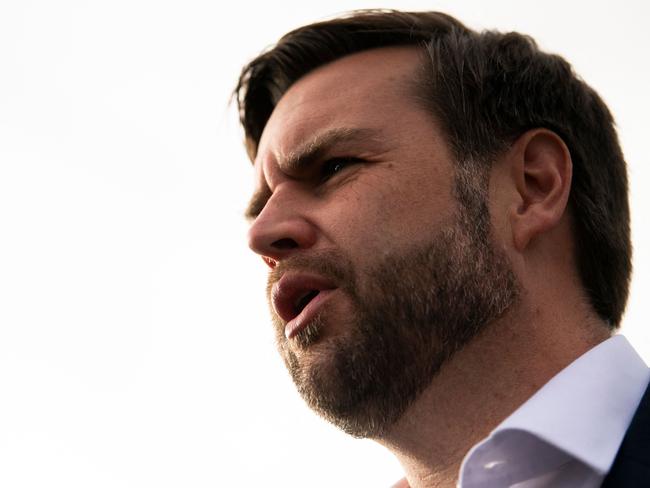
On trade, Trump is greatly influenced by protectionists such as Peter Navarro, who went to jail for a time rather than testify to congress about Trump, and Robert Lighthizer.
The critical near-term questions about Trump policy are: Ukraine, tariffs, the Middle East, China and North Korea.
Trump wants the war between Russia and Ukraine to stop. The deal he has in mind is obvious. Russia gets to keep the Ukrainian territory it has gained and Ukraine gets to keep its nation, gets security guarantees and fighting ends.
Trump said he could end the war in one day. That’s ridiculous. That’s the side of Trump that is at times absurd. And yet he seems to have such simpatico with his supporters that they know to take him seriously but not literally. When, during the campaign, Trump met Ukrainian President Volodymyr Zelensky, he said: “I think long before I take the presidency – it’s January 20 – but long before that, I think we can work out something that’s good for both sides.”
Though a step back from ending the war in one day, even this seems extremely unrealistic. Trump considers himself the master of the deal. He would presumably say to Vladimir Putin: make this deal, which gives you a huge chunk of territory, or I’ll invite Ukraine into NATO. And he presumably says to Zelensky, make this deal or I’ll cut off aid.
In principle, it’s a bad deal, grievously unfair to Ukraine, and rewards Russia for aggression. But Ukraine truly is Biden’s failure. Biden failed to deter Putin. US deterrence was in decline everywhere under Biden. Biden also gave Ukraine only enough weapons to avoid defeat, not to pursue victory, and even now places all manner of restriction on Ukraine’s use of weapons. If America was going to encourage Ukraine to fight, it should have supplied it properly. Instead it followed a policy of multi-directional, self-defeating, strategic timidity.
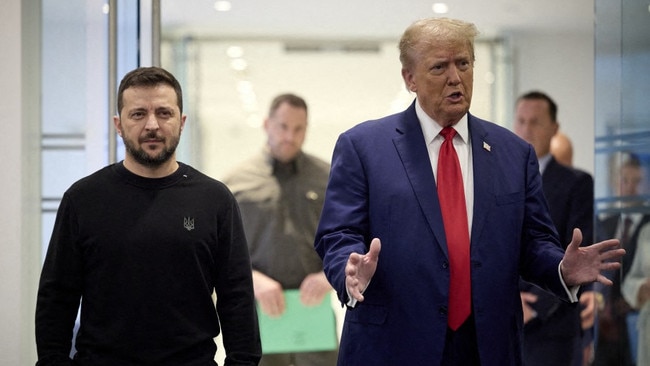
The situation has become nearly unsustainable politically. The deal Trump has in mind is unfair to Ukraine, but it’s the only plausible deal. Trump has a case at another level. Ukraine is surely of more immediate importance to Europe than to the US. The EU, plus Britain, is a bigger economy all together than the US. Even if Trump reduced or removed aid to Ukraine, there’s no reason the Europeans couldn’t supply Ukraine themselves – except that the Europeans, like most US allies, certainly including Australia, are addicted to free-riding on the Americans.
Trump himself will not want to hand Putin an unequivocal victory. But neither is it credible that he would go on endlessly paying for the war. The future here is extremely unclear.
On the Middle East, Trump will be a much stronger backer of Israel than Biden has been. But once again, he will want the wars to end sooner rather than later. The US industrial defence base is not capable of supplying both Ukraine and Israel. Trump is infinitely more likely to rebuild that base than Biden was, or Harris would have been. But that all takes time.
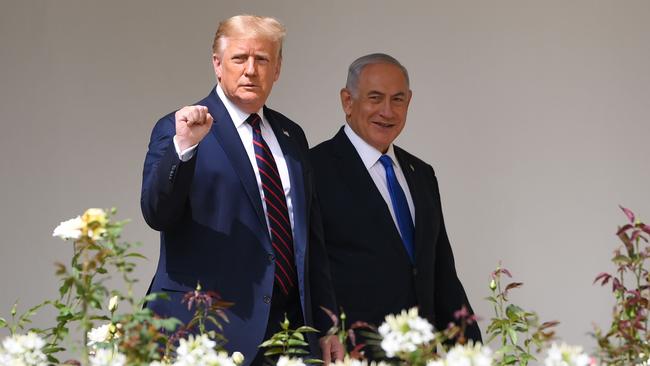
Israel’s key wish is that the US would join it in bombing Iran’s nuclear facilities. Trump has made a big deal about not getting involved in wars unnecessarily. He’s most unlikely to send US forces to bomb Iran unless Iran itself attacks US forces. However, where he will help the Israelis is by applying maximum economic and sanctions pressure on Tehran. Biden tried to woo Iran and got nothing while delivering tens of billions of dollars in sanctions relief, which Iran used to fund Hamas, Hezbollah and the Houthis in Yemen.
On China, Trump is always looking for a deal with Xi Jinping. But Trump will be surrounded by China hawks; congress is full of China hawks. The two-part trade deal Trump concluded with Xi in his first term wasn’t honoured by Beijing, which didn’t buy anything like the amount of US exports it promised to.
On North Korea, Trump officials say he wants to resume his deal-making with Pyongyang’s dictator, Kim Jong-un. But Kim, while greatly flattered by Trump, is much more secure than he was a few years ago. He now has an effective military alliance with Russia, where he has sent 10,000 troops, and is a central member of the authoritarian axis with China, Russia and Iran.
The one thing Trump would want in a deal, for Kim to verifiably give up his nuclear weapons, is the one thing Kim will certainly never deliver. It’s hard to see how this ends productively.
Trump has promised so often to introduce tariffs he will have to do something in that direction. That doesn’t mean we necessarily get a universal US tariff of 10 per cent and a 60 per cent tariff on China. Trump sees tariffs as giving him three things: revenue, protection for American producers and negotiating leverage. Every nation in the world will be busy making their offers to the US to avoid its tariffs. This dynamic is already visible in the rush of world leaders to congratulate Trump.
Anthony Albanese was sensibly among this rush. If there’s any country Trump is likely to exempt from tariff punishment, it’s Australia. Trump likes Australia. More than that, the US has a huge trade surplus with us. There’s enormous two-way investment.
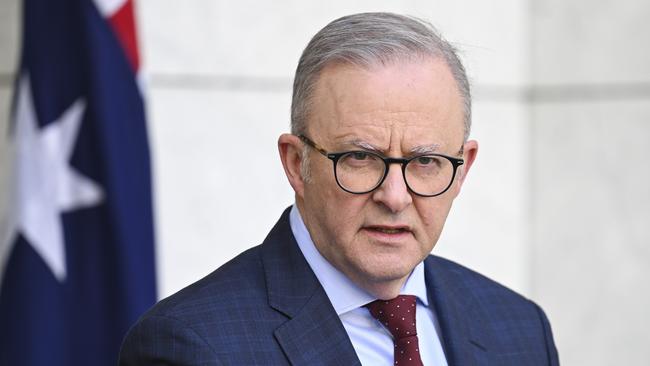
However, Australia is a complete strategic free-rider on the US, and our defence budget last year didn’t even reach the NATO minimum of 2 per cent of GDP. But we host extensive rotations of US forces and key US intelligence and communications facilities. Trump is unlikely to blow up AUKUS but the AUKUS subs are so far away Trump doesn’t have to worry about them. They won’t come up until Vance’s second term at the earliest.
Nonetheless, Trump will be an enormous challenge to the Albanese government. Trump will probably withdraw the US from the Paris climate agreement. China is continuing to build coal-fired power stations at a great rate. If the biggest greenhouse gas emitters in the world, China, and then a long way behind that the US, plus the fastest growing emitters such as India, Indonesia and much of the global south, are continuing to build their economies on fossil fuels, Australian voters will eventually ask why they have to bankrupt the economy and pay vastly inflated energy prices for a deal the big economies have no interest in. Already the costs of green policies are killing European governments.
The Greens will routinely denounce and demonise Trump. Labor’s rank-and-file membership will be inclined to do the same. West Australian Premier Roger Cook’s idiotic comment that Trump’s victory represented a “dark road” is a sign of things to come. This is intensely dangerous for Albanese. Bush was unpopular in Australia when Mark Latham criticised him. But this was disastrous for Latham, for it seemed to threaten the US alliance. The Australian people easily distinguish a president they don’t like from an alliance they love. Threaten the alliance and they’ll clobber you.
Biden and the Democrats have spent 10 years dedicated to stopping Trump, jailing Trump, stamping out MAGA, ridding America of Trump. Albanese and the Labor Party share the Biden sensibility. But at the end of that decade, Biden and the Democrats are in the trash bin of history while Trump and MAGA have never been more powerful.
Albanese will not want to end up like Biden in the age of Trump.


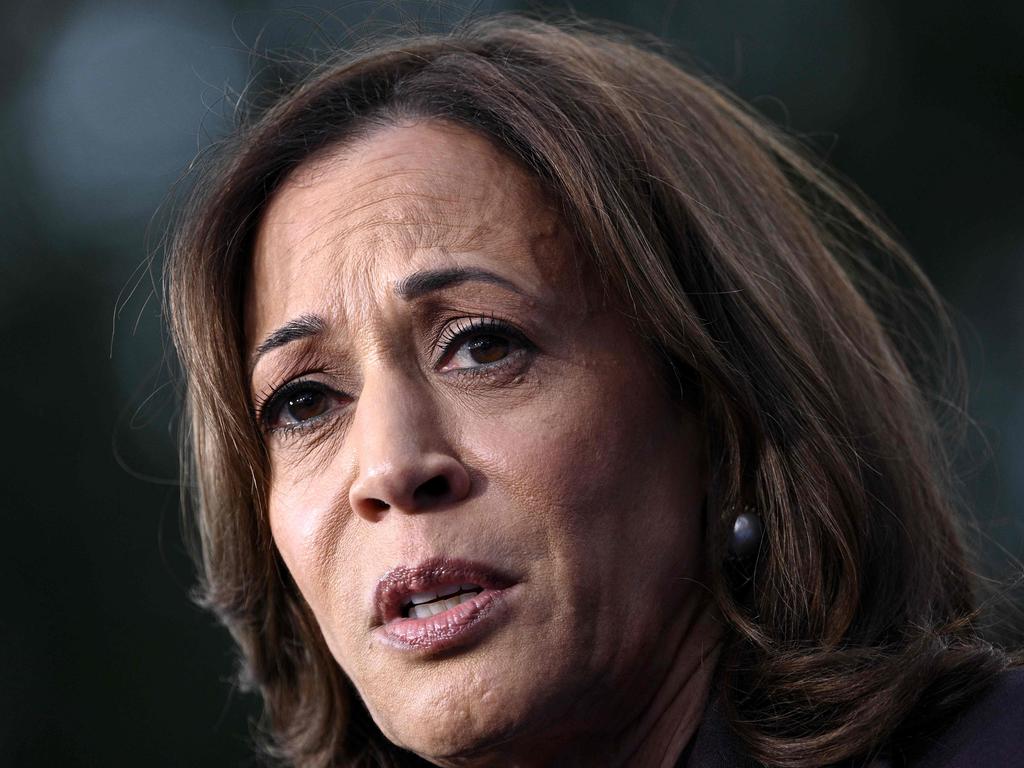
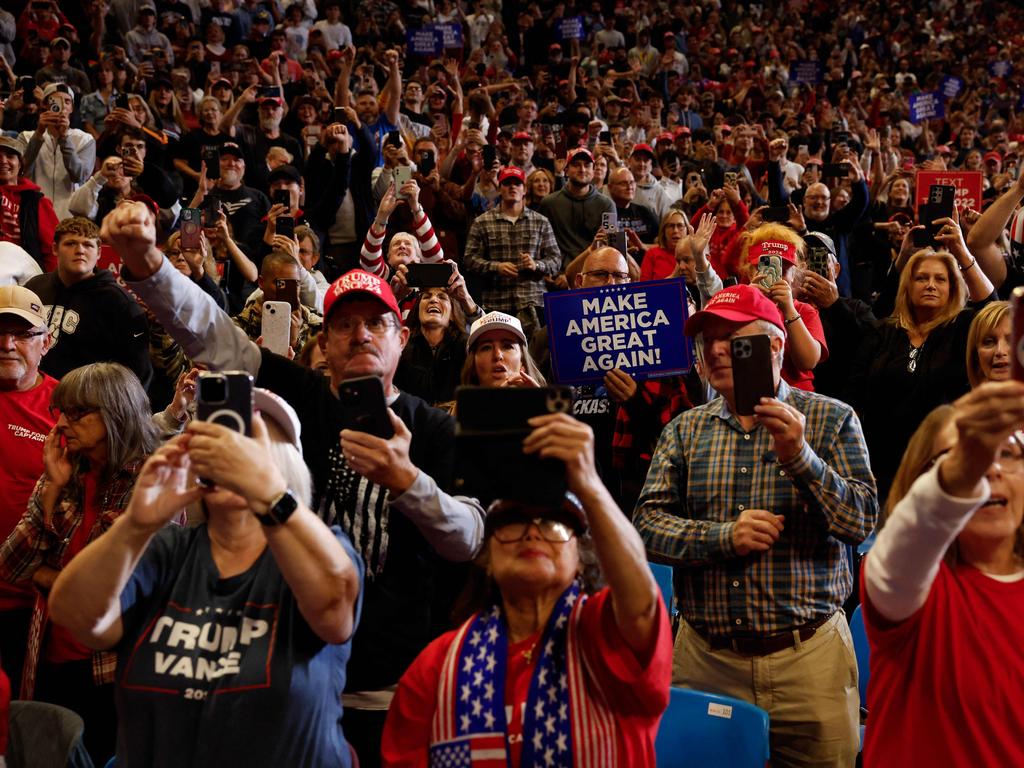

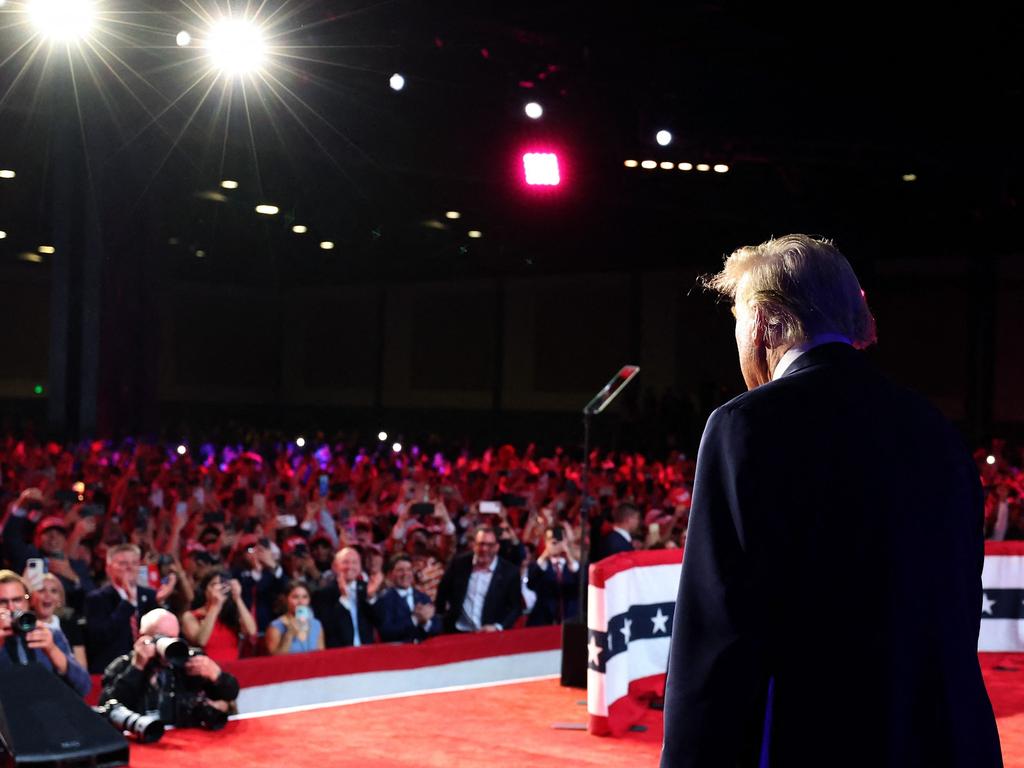


Donald Trump has revolutionised the global power balance, enacted a fundamental realignment of American politics, radically transformed the politics of climate change and energy, cast the global centre-left into crisis, empowered conservatives globally on social issues and badly hurt Anthony Albanese’s chances of re-election.